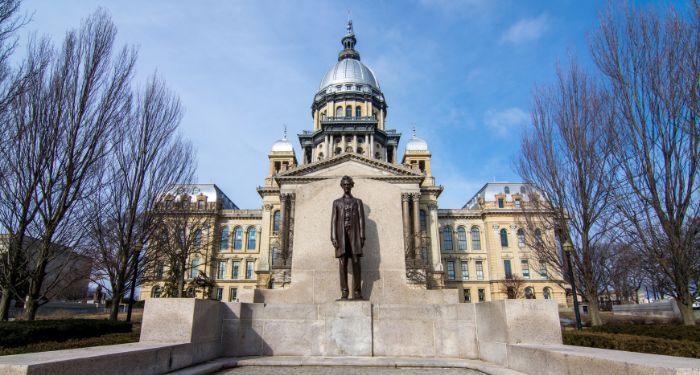Introduced into the Illinois House January 23 by Representative Anne Stava-Murray and cosponsored by Representative Diane Blair-Sherlock, HB 4567 aims to protect library workers throughout the state from harassment, threats, and disorderly conduct. The bill comes in the new legislative session after the state passed the nation’s first anti-book ban bill last year and dealt with several bomb threats in the months following that bill’s passage. The new bill would amend the Criminal Code of 2012.
The bill summary reads as follows:
Includes in offense of threatening a public official or human service provider, threatening a library employee. Provides that the threat to a public official, human service provider, or library employee includes a threat made electronically or via social media. Defines “library employee”. In the offense of threatening a public official, human service provider, or library employee, includes in the definition of “public official” an employee of any State of Illinois constitutional office, State agency, or the General Assembly. Provides that the offense of disorderly conduct includes transmitting or causing to be transmitted threats or false reports electronically or via social media. Provides that disorderly conduct includes the knowing transmission of or causing to be transmitted in any manner, including electronically or via social media, a lewd, lascivious, indecent, or obscene message to a public official. Provides that making a terrorist threat or falsely making a terrorist threat includes making a terrorist threat or falsely making a terrorist threat by any means of communication, including electronically or via social media. Makes other changes.
Where once library workers were not explicitly named among populations protected from threats, the new bill would include the profession by name. The threats would be investigated and taken seriously, whether they came in person or through electronic means, including social media.
Not only does naming library workers in the Criminal Code lend legitimacy to the profession–and it covers everyone within a library from professional librarians to shelvers, custodians, and others–it codifies the importance of libraries to democracy in the state. Protections would extend beyond public library workers, too. It also covers those working for private libraries.
Amending the code to include threats transmitted via electronic means and social media legitimizes the current landscape of threats specifically targeting public employees as well. Bomb threats sent through email to a library, for example, would be considered a Class 1 felony. The current Code does not include threats received online.
Stava-Murray represents Illinois’s 81st district, which includes Downers Grove, as well as parts of Lisle, Naperville, Woodridge, Darien, Westmont, and Bolingbrook. Downers Grove was among the libraries targeted by protesters and threats over a teen drag queen bingo event in fall 2022. Other public libraries in the district have been subject to similar threats and harassment. Diane Blair-Sherlock represents the 46th district, which includes all or parts of Addison, Oak Brook Terrace, Carol Stream, Glen Ellyn, Elmhurst, Villa Park, and more. Several of those libraries, including Addison, were subject tp bomb threats last fall.
Illinois residents are encouraged to reach out to their representatives in support of the changes. The bill has not moved to committee yet, but when it does, take the time to also file a witness slip as a proponent of the bill.

